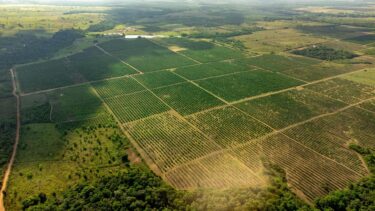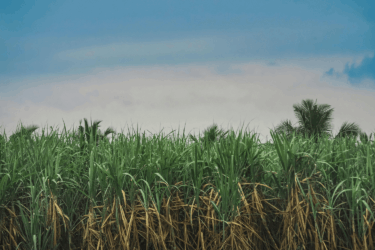
Contents
- ESG evaluation as a strategic driver
- A new approach to supplier management
- Advantages for suppliers
- Keys to successful implementation
- EcoVadis as a transformation catalyst
- How Anthesis drives impact
Share this article
Amid accelerating climate, biodiversity, and resource challenges—coupled with intensifying regulatory and stakeholder pressures—the agri-food sector holds a pivotal role in driving sustainable transformation.
Across the entire value chain—from primary production through packaging, transportation, and distribution—each stage presents opportunities to optimise performance while delivering transparent, accountable sustainability outcomes.
The global agri-food sector faces a dual challenge: ensuring quality, traceability, and regulatory compliance, while responding to consumers increasingly demanding transparency regarding product origin and sustainability credentials. The perishable nature of many raw materials—requiring cold chains and tight operational deadlines—transforms each stage into a potential critical control point without adequate visibility and management systems.
While many agri-food companies worldwide are integrating sustainability considerations into their business models, significant opportunities remain to develop more structured and systematic ESG approaches that drive measurable performance across environmental, social, and governance dimensions.
ESG evaluation as a strategic driver in the agri-food chain
ESG criteria have evolved from reputational add-ons to core business strategy components, particularly in sectors where environmental and social impacts are most significant. Today, the agri-food sector faces multifaceted challenges: greenhouse gas emissions, intensive water use, soil degradation, animal welfare concerns, precarious working conditions during cultivation and harvesting, and dependence on chemical inputs. Combined with growing consumer pressure, this demands traceability, ethics, transparency, and genuine commitment from brands.
To address this complexity, companies increasingly turn to platforms like EcoVadis, which enables standardised evaluation of suppliers’ environmental, social, and ethical performance. These tools provide visibility into practices and risks associated with third-party partners. It’s no longer sufficient to apply good practices within organisational boundaries—companies must take decisive action to prevent, mitigate, and remedy social and environmental risks linked to their operations, products, and services.
EcoVadis in agri-food: a new approach to supplier management
EcoVadis is a global ESG evaluation platform covering more than 21 criteria across environment, labour practices, ethics, and sustainable procurement, based on recognised standards including ISO 26000, UN Global Compact, GRI, and OECD guidelines.
Beyond being a control mechanism, EcoVadis offers sector comparability, monitoring dashboards, benchmarking capabilities, and action plans that help suppliers improve their sustainability performance. Leading companies increasingly require suppliers to undergo evaluation through this platform, sometimes establishing it as a prerequisite for maintaining business relationships or accessing specific product categories.
This approach delivers multiple strategic objectives:
- Supply chain visibility: enables understanding of suppliers’ ESG performance and risk detection before impacts or conflicts arise.
- Stakeholder transparency: EcoVadis results are shareable, allowing tangible demonstration of sustainability commitment to consumers and investors.
- Regulatory compliance: tools like EcoVadis help meet current and future regulations, including the European Corporate Sustainability Due Diligence Directive (CSDDD), French Duty of Vigilance Law, and Corporate Sustainability Reporting Directive (CSRD) requirements.
- Long-term partnership building: the evaluation focuses on improvement rather than punishment, fostering more structured and collaborative buyer-supplier dialogue.
EcoVadis’ key strength lies in its adaptability. Evaluations adjust to each company’s sector, size, and location—particularly relevant in agri-food, where small rural cooperatives coexist with large industrial groups with global reach. A traditional olive oil producer faces different requirements than a multinational food logistics company.
This flexibility enables broader participation while offering realistic, progressive sustainability roadmaps. Rather than imposing rigid standards, EcoVadis supports companies within their specific contexts, helping elevate practices and consolidate more responsible and resilient value chains.
Advantages for suppliers
For agri-food suppliers—producers, input manufacturers, transporters, cooperatives—EcoVadis evaluation may initially generate concerns. The process requires information gathering, questionnaire completion, and documentation to support practices.
However, the benefits far outweigh the efforts:
- Clear performance diagnosis: evaluation reveals company sustainability maturity levels and identifies critical improvement areas.
- Continuous improvement framework: reports with recommendations help prioritize actions, implement improvements, and demonstrate progress in successive evaluations.
- Market access enhancement: strong EcoVadis scores open opportunities, as many large companies only engage or renew suppliers meeting minimum ratings.
- Enhanced reputation and trust: independent evaluation provides credibility with clients, partners, financial institutions, and public administration.
- Future regulatory preparation: documented and evaluated processes increasingly support European legislation compliance.
Additionally, evaluated suppliers can share scores with multiple clients from the same platform, optimising effort investment
Keys to successful EcoVadis implementation
For both evaluation requesters and recipients, these recommendations can make the difference:
- Progress Communication: Sharing results and implemented actions reinforces reputation and demonstrates leadership.EcoVadis as a Lever for Transformation
- Cross-functional Engagement: Sustainability, quality, procurement, and human resources must work in coordination.
- Strategic Preparation: Prepare documentation, review existing policies, and adapt procedures as necessary rather than improvising.
- Commitment to Continuous Improvement: Achieving an acceptable score once isn’t sufficient—demonstrating ongoing progress matters most.
- Supplier Support: Leading companies generate positive impacts by helping suppliers improve rather than demanding performance without offering support.
EcoVadis as a transformation catalyst
Beyond simple rating assignment, EcoVadis drives structured ESG risk and opportunity management, enabling companies to identify improvement areas and prioritise them based on value chain impact. In a sector as fragmented and diverse as agri-food—where small producers coexist with large distributors—the standardisation and transparency this tool provides are essential for aligning objectives and building stakeholder trust.
Examples of sector improvements include:
- Implementation of efficient water use policies and pesticide reduction in agricultural operations
- Development of health and safety protocols in processing plants
- Introduction of social and environmental clauses in subcontractor and local cooperative contracts
- Enhanced traceability and documentation of ethical and environmental practices
The ability to compare sector performance not only fosters competitiveness but also drives the adoption of more sustainable and innovative models, including circular economy approaches and regenerative agriculture.
How Anthesis drives impact
Anthesis Spain is a strategic training partner of EcoVadis, the world’s leading business sustainability ratings provider. Strategic training partners are formally accredited to help companies complete sustainability assessments, review results, and improve practices across Environment, Labor and Human Rights, Ethics, and Sustainable Procurement.
Strategic training partners are carefully selected based on experience and expertise, completing rigorous training on EcoVadis methodology and evaluation processes. To obtain this accreditation, partners must demonstrate deep knowledge of local environmental, ethical, and human rights regulations and challenges, while having completed the EcoVadis assessment for their own organisation.
As a strategic training partner, Anthesis is trained and authorised to:
- Provide consulting services helping suppliers interpret scorecards and Corrective Action Plans, supporting implementation of improvements and sustainability practices throughout supply chains
- Train and support suppliers in understanding EcoVadis methodology and completing assessments
- Help buyers understand how EcoVadis assessment can benefit their business and supply networks
We are the world’s leading purpose driven, digitally enabled, science-based activator. And always welcome inquiries and partnerships to drive positive change together.




